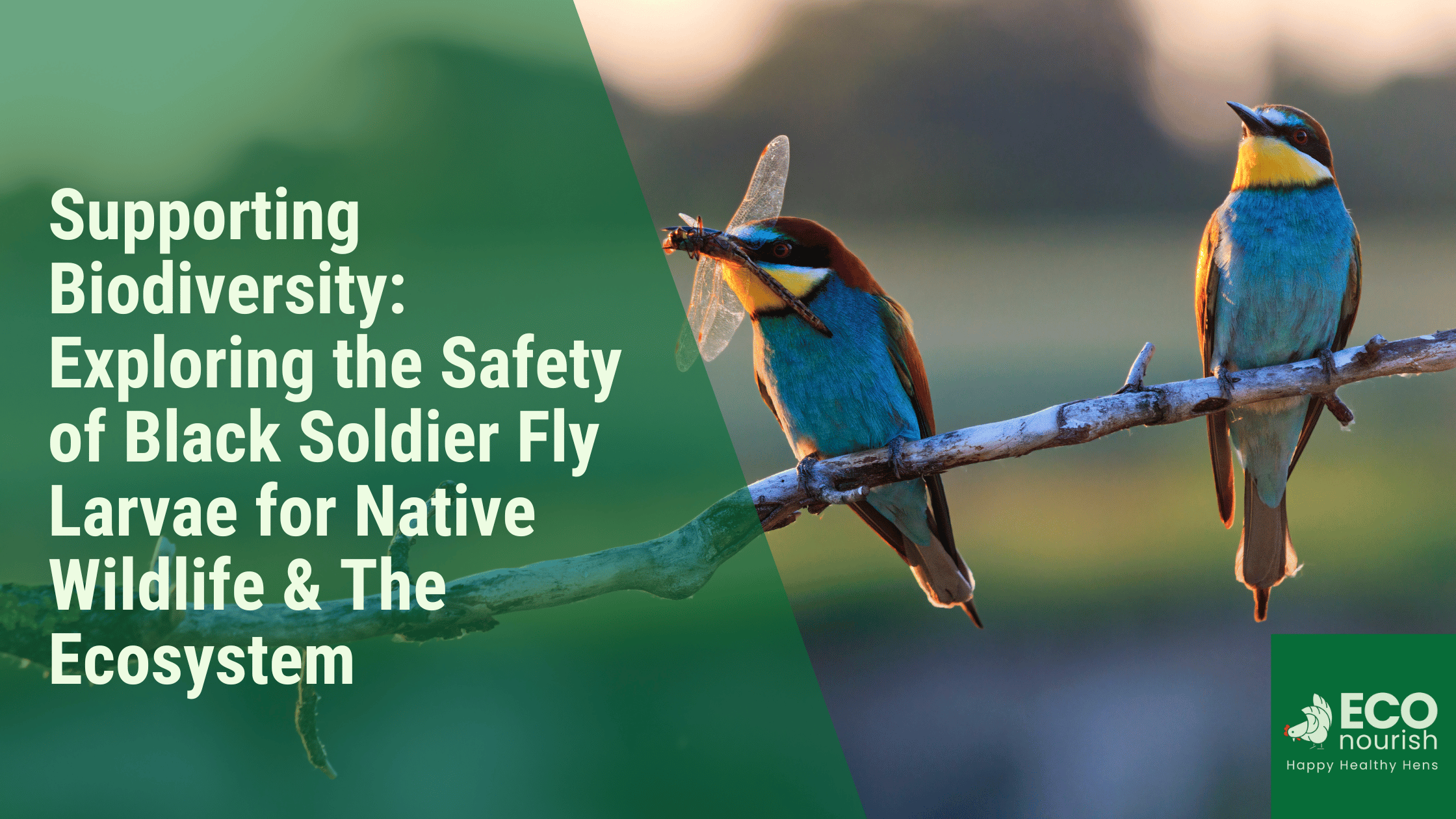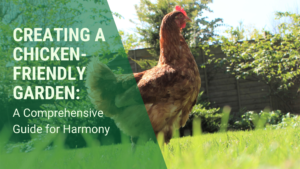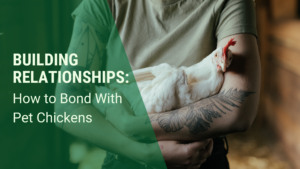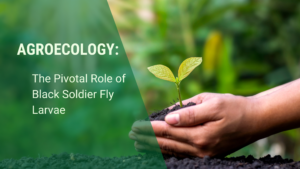Exploring the impact of Black Soldier Fly Larvae for UK Native Wildlife & The Ecosystem
If you’re eco-conscious, it’s only natural that you’d have questions about the impact of introducing live Black Soldier Fly larvae (BSFL) into the environment. After all, these insects originated from far-flung climates. You may be antsy about introducing new foreign insects to your backyard ecosystem, especially if they’re from overseas.
Invasive non-native species (INNS) are one of the top five threats to global biodiversity, costing the UK economy nearly £1.9 billion a year, and can even harm our health. So, are there any biodiversity risks associated with Black Soldier Fly larvae? What does that mean for the ecosystem? And how will it affect native wildlife? You’re about to find out! But, spoiler alert, it’s good news.
Accidental Escapologists: Should We Worry If Black Soldier Fly Larvae Escape in the UK?

When you’re scattering larvae around the garden, in the unlikely event your flock don’t peck them up before they’ve had the opportunity to move an inch, here are the facts about whether to be concerned if they make a wriggle for it.
1. Bug-eyed about Diseases: BSFL Are Not Disease Vectors
You read that right! BSFL are the ultimate clean eaters. They’re renowned for feasting on decomposing organic matter and eliminating harmful pathogens in the process. The secret lies in the fact that they can reduce bacterial loads in their waste-consuming process. BSFL have even been considered for removing harmful pathogens in soil and manure and be particularly transformative for tackling antimicrobial-resistant bacteria.
So BSFL don’t carry disease, and they’re pretty super at protecting against it with their antimicrobial peptides. Find out how BSFL help with gut health and immunity here.
2. BSFL Are Not Pests
Pests are typically characterised by their destructive impact on agriculture, structures, or human health. They are unwanted organisms that compete with humans for food or space, transmitting diseases and causing damage. BSFL, on the other hand, do not share these attributes.
Unlike many agricultural pests, BSFL do not feed on living plants or stored produce. This fundamental behaviour creates a distinction that sets them apart from the likes of locusts, weevils, or aphids, which wreak havoc on crops. BSFL’s diet consists exclusively of organic waste materials—think decomposing fruits, vegetables, and other organic waste. Our larvae are fed on a substrate of organic brewery waste. By consuming these materials, they actually contribute to the cleanliness and hygiene of their environment rather than depleting valuable resources
3. BSFL Don’t Bite or Sting
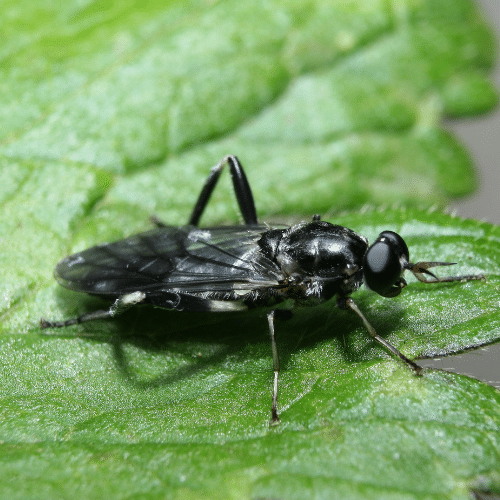
Both the larvae and the adult flies lack biting mouthparts and do not have any form of toxin or venom that could pose a threat. Find out more about Black Soldier Fly larvae in our Guide to Calci Worms.
4. The Adult Black Soldier Fly Have Short, Harmless Life
As adults, Black Soldier Flies (BSF) are uninterested in our food, crops, or wardrobes. Their adult life stage is remarkably short, with a singular focus on reproduction. They do not swarm kitchens, settle on fresh produce, or spread across crops as many pests do.
Because the adult Black Soldier Fly does not have mouthparts associated with biting, they do not eat. They rely on the nutrients taken as larvae for their adult energy requirements. Rarely will they sip nectar from flowers, but other than that, they take on no sustenance. This technically gives them the status of “pollinators” as adults. However, their primary role in the ecosystem is in their larvae form – as waste disposal units.
Once the Black Soldier Fly adult has mated, they pass on without leaving a legacy of destruction.
5. BSF Are Unlikely to Breed in the UK
A few escapee larvae are highly unlikely to result in an infestation. Breeding is heavily dependent on temperature and humidity. BSF are native to warmer, tropical climates and do not thrive in our relatively damp, chilly UK environment. We must carefully control temperature and humidity in our propagation room to breed them – at 28 degrees Celsius and 70% humidity. So it’s always a sweaty affair at ECOnourish HQ – even in the depths of January! This is why the likelihood of BSF colonising in the UK outside of their manufactured environments is extremely low.
6. A Positive Impact on Native Wildlife

The larvae are not only safe for our native wildlife, but they also come bearing gifts. Packing a punch with proteins and fats, BSFL are a nutritious food source for our birds and hedgehogs. Even if some larvae did escape, they could become a beneficial addition to the diet of our native fauna.
Whether wildlife opportune upon some escapee larvae or you opt to give them an intentional treat, there are only benefits to be gained for them and no risk.
7. Green Thumbs Up: BSFL and Environmental Impact
If you think BSFL are already impressive, just wait until we talk about their eco-friendly contributions! Waste decomposition and soil enrichment are just the tips of the iceberg. The byproducts of their waste-munching process – frass and leachate – are used as eco-friendly fertilisers and pesticides in agriculture.
8. BSFL Farming Actually Supports Biodiversity

Soy may seem harmless, but its cultivation destroys ecosystems to make room for commercial agriculture and is a primary factor in habitat loss. Farming BSFL as a viable alternative for animal feed reduces the reliance on soy crops, providing a potential lifeline for biodiversity. BSFL farmers are working to protect our ecosystems from further harm by creating a beneficial circle of converting waste into nourishment.
This research paper explains in detail the Black Soldier Fly’s role in conserving biodiversity.
A Larvae Love Story: Final Thoughts
Considering their unlikely survival in the wild, disease-reducing qualities, their advantages to local species, and their potential to support biodiversity, any concerns about BSFL ‘escapees’ can be allayed.
By feeding these wriggly heroes to your garden flock, not only will you get the joy of happier, healthier birds, but you should also have no worries about their broader impact on the ecosystem. In fact, every larva pecked up by your flock reduces reliance on damaging agricultural practices and takes a step towards sustainability. This decision lets you wear your eco-credentials with pride. Every little change can make a big difference.
Order your larvae today for delivery tomorrow from our shop.
